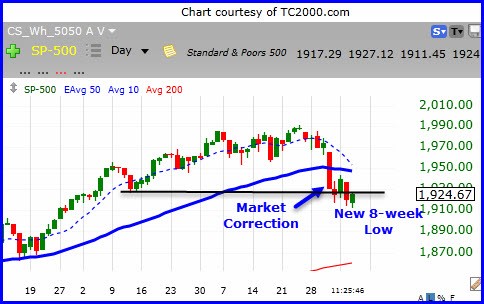Best ETFs for Shorting Inverse Against the Market ETFs
Post on: 26 Июнь, 2015 No Comment

An ETF is an investing vehicle that holds a group of stocks and can be traded on major stock market exchanges like a stock. ETFs, though they may track a market, commodity or sector like a mutual fund, are nevertheless not the same as mutual funds. They’re more convenient: they can be traded like a single stock during normal business hours and after-hours trading, and they can be bought on margin and shorted.
This liquidity, coupled with a variety of market, sector and commodity ETFs, make them convenient for trading strategies such as shorting. You can go on margin and short ETFs in the traditional way, like a stock. However, traders also have the option of buying inverse ETFs. which achieves roughly the same effect as shorting, but is simpler. These products move in the opposite, or inverse, direction of the underlying market or sector – so if the underlying market loses value, you make a profit.
Inverse ETFs are purchased by short-term traders who wish to make a quick profit from a downturn, or as a risk-reducing hedge by those who have long positions in the underlying market. Investment advisors generally counsel against shorting any investment as a long-term strategy, however, since historically the market always moves up. Inverse ETFs have other potential pitfalls: they can sometime be illiquid, meaning it’s harder to make a trade when you need to. Inverse ETFs may lose value in a flat market. And since inverse ETFs require more oversight by fund managers, the fees for them may be more expensive that other ETFs.
Inverse ETFs do have some advantages, though, when used judiciously. The variety of inverse ETFs offers choices: you can short the whole market, a sector of the market, or a selected commodity.
One of the biggest advantages of an inverse ETF is that you can short the market without having to have a margin account. While you still run the risk of losing money if the underlying market or sector goes up, you don’t have to worry about losing more money than you invested – as you would if you were on margin.
Double-and even triple-leveraged inverse ETFs are also available, designed to go up twice or three times the percentage that the underlying market goes down – though some financial advisors warn that they don’t always deliver on that promise. One reason is that market volatility hurts the long term value of a leveraged ETF. You can use leveraged Inverse ETFs to make a lot of money, very quickly, when the market moves your way. But when the market goes against you in a double- or triple-leveraged trade, your investment can simply melt away before your eyes. That’s why advisers emphasize that inverse ETFs, and especially leveraged inverse ETFs, are a short-term play. Holding them for a longer time increases the odds that the market will move against you, and once it does, it’s very hard to recover.
So which ETF sectors are good to short in 2015?
The European debt crisis has economists worried about the possibility of a European recession in 2015 and what that would mean for the U.S. Europe’s Saxo Bank made the tongue-in-cheek prediction that the European stock market will implode under its ongoing debt crisis, necessitating an extended “bank holiday” and the formation of a “new Europe.” It foresees many European commercial banks being nationalized. While most economists wouldn’t go that far, worries about Europe are still front and center. Sectors with high exposure to European financials are vulnerable if the crisis is not resolved.
Therefore, the Wall Street Sector Selector website counsels its readers to avoid two ETFs that track Europe, because they have significant exposure to European financials.
Motley Fool Advisor David Meier calls U.S. financials and industrials some of the worst sectors for 2015, if the global economy stays slow. Some companies in the industrial sector also carry high debt, which combined with weak demand, may result in a difficult year.
Bob Doll of the BlackRock investment management firm states that the firm is underweight the financial sector in 2015 due to its concerns about “revenue growth potential, regulatory risks and deteriorating and residual credit concerns.” He also calls the utility sector overvalued, in part due to weak earnings prospects.
And finally, you may want to consider the rumors that 2015 may be the year that the world is attacked by aliens, suffers a massive natural disaster, or collides with Planet X. Better short the market while you can.
This article was updated on 3/5/2015.














